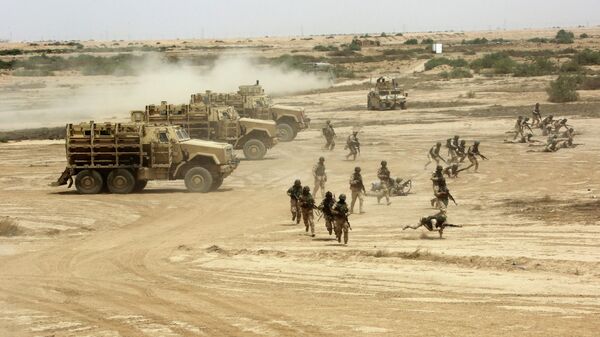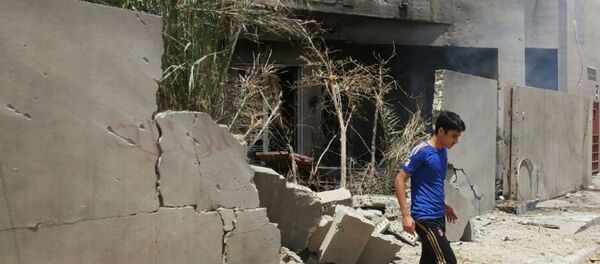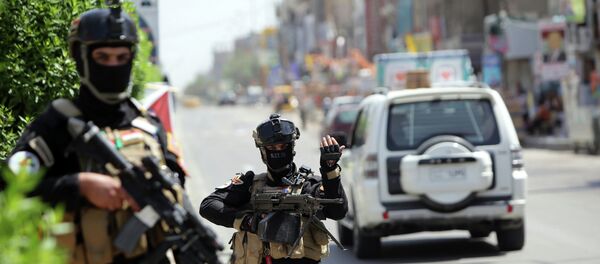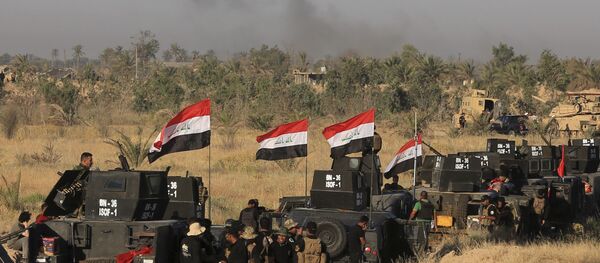As Iraqi government forces, joined by Shi'ite militias, launch an offensive to retake the city of Fallujah from Daesh, there are serious concerns about the effectiveness of the Iraqi army and the possibility of a humanitarian catastrophe, as some 50,000 Sunni civilians are trapped in the besieged town.
Some 17 months and 4,000 American troops have done little to significantly increase the combat readiness of the Iraqi regular army, as evidenced by at least one US civilian official, one ex-official, a former general and three current senior US military officers, reports News.Trust.Org.
There have been a few military successes, mostly attributed to American-trained Iraqi Special Forces, a rather small fraction of the Iraqi military has been in continuous combat for almost two years. American officials, including retired US Lieutenant General Mick Bednarek, who commanded the US military training effort in Iraq between 2013-2015, expressed concern that Special Forces will burn out to the point of ineffectiveness from the constant duty.
In the meantime, Iraqi regular army units, whose combat readiness is estimated at only some 60-65 percent, prefer to stay out of combat and fail to fill the power vacuum after Special Forces drive Daesh away. This vacuum is usually swiftly filled by sectarian militias, officials say.
Trained combatants can then flee to join their militias, sometimes along with US-made weaponry intended for Iraqi regular army.
"We would transfer arms to units in those areas — and either because of corrupt commanders or outright robbery — they would end up in the hands of the militia groups," said one US officer, noting that despite all efforts to tighten up arms control, these leaks have not been stopped.
The militias have their influence among regular Iraqi army command, officials say. According to their estimations, 10-20 percent of the 300 officers who run the Iraqi military's Operations Command have an affinity or association with either the Badr militia or Shi'ite religious leaders.
The Iraqi military operations command in several provinces is believed to be dominated or directly commanded by various militia leaders. These leaders either have an affinity with third-party forces or have record of terrorist activity across the Middle East.
The Iraqi government attempts to downplay militia influence, stating that these paramilitary groups are "official," and are under the control of the government.
According to Iraqi defense ministry spokesman Brigadier General Yahya Rasool, the militias are "an official body connected with the office of the commander-in-chief of the armed forces," which "have a great role in supporting the army forces and the federal police."
Both the government and Shi'ite militia representatives deny that paramilitary groups act on their own, which includes recent looting at a freshly-retaken oil refinery.
Interestingly, US government joins the choir, insisting that the US military training strategy succeeds in making the Iraqi army stronger and more effective, and that no changes should be made. However, US officials on the ground in Iraq claim that no military training effort can succeed until the US puts more pressure on Iraq's Shi'ite and Sunni political leaders to strike a genuine power-sharing agreement.





